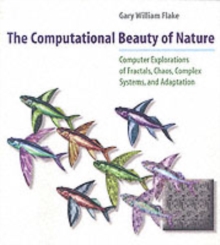
Minding Minds : Evolving a Reflexive Mind by Interpreting Others PDF
by Radu J. Bogdan
Part of the A Bradford Book series
Description
Drawing on philosophical, psychological, and evolutionary perspectives, Bogdan analyzes how primates create the resources for "metamentation"-the ability of the mind to think about its own thoughts.
Mental reflexivity, or metamentation-a mind thinking about its own thoughts-underpins reflexive consciousness, deliberation, self-evaluation, moral judgment, the ability to think ahead, and much more. Yet relatively little in philosophy or psychology has been written about what metamentation actually is, or about why and how it came about. In this book, Radu Bogdan proposes that humans think reflexively because they interpret each other's minds in social contexts of cooperation, communication, education, politics, and so forth. As naive psychology, interpretation was naturally selected among primates as a battery of practical skills that preceded language and advanced thinking. Metamentation began as interpretation mentally rehearsed: through mental sharing of attitudes and information about items of common interest, interpretation conspired with mental rehearsal to develop metamentation.
Drawing on philosophical, psychological, and evolutionary perspectives, Bogdan analyzes the main phylogenetic and ontogenetic stages through which primates' abilities to interpret other minds evolve and gradually create the opportunities and resources for metamentation. Contrary to prevailing views, he concludes that metamentation benefits from, but is not a predetermined outcome of, logical abilities, language, and consciousness.
Information
-
Download - Immediately Available
- Format:PDF
- Pages:223 pages
- Publisher:The MIT Press
- Publication Date:11/08/2003
- Category:
- ISBN:9780262268905
Information
-
Download - Immediately Available
- Format:PDF
- Pages:223 pages
- Publisher:The MIT Press
- Publication Date:11/08/2003
- Category:
- ISBN:9780262268905










